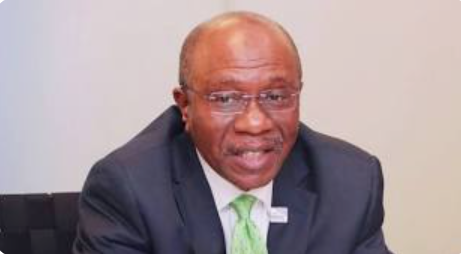
DANIEL ADAJI delves into the intricate policies of the ex-governor of the Central Bank of Nigeria that led to his current predicament.
Life is full of surprises and twists of fate. The story of the embattled former Governor of the Central Bank of Nigeria, Godwin Emefiele, is emblematic of this notion.
Rising through the ranks, Emefiele became a significant figure in Nigeria’s financial landscape. Feared and revered, his economic policies held sway over the country’s economy, until his fall from grace.
After assuming the position in 2014, Emefiele weathered the storm of political transitions. However, his policies began to take a toll on the economy, inviting the ire of many, including the incumbent President, Bola Tinubu.
Amid a declining foreign exchange reserve, Emefiele’s CBN imposed restrictions on 43 items in 2015, aiming to bolster local production. These restrictions, however, triggered a surge in black market exchange rates, weakening the country’s currency.
To counter the falling naira, Emefiele resorted to unconventional tactics, such as monitoring Bureau de Change operators and enforcing the cutting of trees in areas where black market vendors operated.
The CBN, under Emefiele, also introduced stringent measures on cryptocurrency transactions, eliciting mixed reactions from various quarters.
Poverty and Inflation
During his tenure, Nigeria’s inflation soared, accompanied by a depreciation of the naira’s value. The country’s poverty rate surged, with millions facing multidimensional impoverishment, exacerbated by the economic policies under Emefiele’s leadership.
Factors like the COVID-19 pandemic and geopolitical events did impact the economy; however, Emefiele’s monetary policies aggravated the situation, leading to skyrocketing inflation and economic distress.
Violation of CBN Laws
The CBN’s loans to the government, known as ‘Ways and Means,’ far exceeded the permissible limit, contravening the institution’s constitutional constraints. The unchecked borrowing further contributed to Nigeria’s escalating inflation.
Emefiele’s actions in circumventing the CBN Act drew widespread criticism, with accusations of prioritizing political interests over the institution’s regulatory mandates.
Partisanship and Political Engagement
Emefiele’s foray into partisan politics, notably his bid for the presidency, violated Nigeria’s constitutional norms. His political ambition and subsequent involvement in the electoral process irked the ruling party and its prominent figures, leading to a loss of favor.
Policy Reversals
The CBN under Emefiele initiated contentious monetary policies, including a currency redesign and the promotion of a cashless economy. However, these moves faced resistance from government officials and elicited public backlash due to the adverse impact on the populace.
The currency redesign, initially celebrated, faced criticism as its implementation exacerbated economic hardships, adversely affecting citizens.
Transparency Concerns
Emefiele faced reproach for withholding the CBN’s financial statements from public scrutiny, thereby violating the institution’s statutory obligation to provide transparent financial reports.
Failed Agricultural Reforms
The Anchor Borrowers’ Programme, launched to boost agricultural reforms, faced criticism for its inadequate implementation, leading to disillusionment among farmers and stakeholders.
The Fall from Grace
Emefiele’s downward spiral culminated in his suspension and subsequent legal battles, embroiling him in allegations of financial impropriety and economic malfeasance.
Lessons Learnt
The saga of Emefiele underscores the transient nature of power and the repercussions of adhering to unjust directives. It serves as a cautionary tale for political appointees, emphasizing the ramifications of complicity in detrimental policies.
